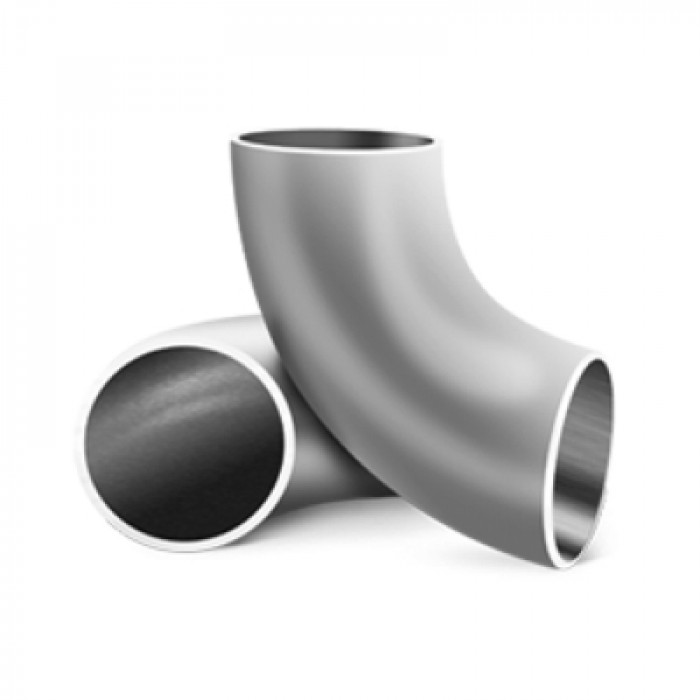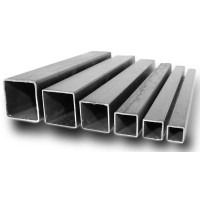Nikolaev steel, stainless steel, threaded and welded flanges (Metallobaza)
Steel bends are products that are used to change the direction of various pipelines. They are segments of pipes bent at the right angle. They are performed, as a rule, on special pipe bending machines, and are mounted on the pipeline by means of butt welding. The operational scope of these parts is incredibly wide, but they are most often used in the installation of oil, gas and water communications.
Consider the main areas in which these products are operated:
plumbing systems;
heating communications;
industrial highways for various purposes;
oil and gas industry;
chemical industry;
pumping stations.
Such products are used when wiring communications for any purpose, however, not all of their types are suitable for certain pipelines. For example, for laying main networks, as a rule, they use steeply curved seamless, stamp-welded, as well as bent products made of stainless steel, alloyed, and galvanized bends. This is due to the fact that such communications have large cross-sectional dimensions and can operate at high pressure of the working medium.
For domestic communications, an excellent solution are steeply curved or bent varieties of bends. And point products are very popular when installing pipelines at enterprises that produce various mineral fertilizers.
Fittings for pipelines are widely used in any installation, and steel rotary parts are considered the basis of any pipeline. Along with tees and transition elements, they play an important role in connecting the communication and in increasing its strength.
Consider the main advantages of these products:
with the help of these products, a smooth turn of the pipeline structure is made;
the characteristics of metal bends make it possible to use them in difficult operating conditions - they have high strength characteristics, and can also be operated at high pressure;
steel products are resistant to temperature fluctuations;
the cost of such taps is quite democratic;
have a long service life when used in aggressive industrial environments.
The most popular today are models that are curved at an angle of 45 and 90 °.
Advantages of steel bends
Fittings for pipelines are widely used in any installation, and steel rotary parts are considered the basis of any pipeline. Along with tees and transition elements, they play an important role in connecting the communication and in increasing its strength.
Consider the main advantages of these products:
with the help of these products, a smooth turn of the pipeline structure is made;
the characteristics of metal bends make it possible to use them in difficult operating conditions - they have high strength characteristics, and can also be operated at high pressure;
steel products are resistant to temperature fluctuations;
the cost of such taps is quite democratic;
have a long service life when used in aggressive industrial environments.
The most popular today are models that are curved at an angle of 45 and 90 °.
Steel bends
The most popular are parts with an angle of rotation of 45 and 90 degrees.
Materials and production methods
Steel bends are made of alloy, stainless, corrosion-resistant or carbon steel. Chrome-plated, nickel-plated and galvanized products with increased resistance to corrosion processes are produced. The material of manufacture affects the scope of the bends.
Household communications that do not have contact with aggressive environments are made of carbon steel. If there are chemically active substances in the system, then stainless or alloy steel bends are used.
Alloy bends are used at temperatures from -60 to +40 °C with pressure up to 7.4 MPa, which allows them to be mounted on pipelines in cold climatic zones. Stainless products are designed for pipeline systems transporting hot, acidic, alkaline media. They are corrosion resistant.
Galvanized bends are a common type of product made from galvanized steel. They are able to withstand high pressure and transport aggressive media.
Branches differ in the method of manufacture. Allocate:
Sharply curved.
Stamp-welded.
Bent.
Welded sector/sectional.
Turned.
Threaded flange means that the inner hole of the flange is a thread, the shape of the threaded flange is similar to the slip-on flange, so the threaded flange can be in the form of a plate or with a sleeve for longer threads. Threaded flange Attaching a threaded flangeto have the same thread characteristics as a pipe thread, the advantage of a threaded flange is that the pipe system can
The flange is the second most commonly used connection method after welding. Flanges are used when disassembly of connections is required. This provides operational flexibility. The flange connects the pipe to various equipment and valves. Separating flanges are added to the piping system if regular maintenance is required during the operation of the plant. The flange connection consists of three separate and independent, albeit interconnected, components. Steel elbows are used to build pipelines in production and for domestic water supply. Such products are very durable and do not lose their properties for many years. When installing elbows, you should use tow or other insulating material on top of the elbow thread to avoid water leakage at the pipeline joint. They are manufactured at factories in special pipe bending machines from straight blanks. They are also used in the oil industry and in the construction of heating pipelines. These products can withstand high pressure inside the pipe. Elbows should be purchased from trusted suppliers who have a license to sell such goods in order to avoid buying defective goods. The greatest demand these days is for elbows with a bend angle of forty-five and ninety degrees. These products can have a chrome-plated and galvanized surface. Elbows that have undergone the alloying process are used at temperatures from minus sixty to plus forty degrees and a pressure inside the pipes of up to seven point four megapascals. This allows the use of such pipelines in places with a very cold climate. It is better to entrust the installation of pipelines in houses and apartments to a specialist. Elbows can handle aggressive chemicals. Elbows for apartments and houses are made of carbon steel, since running water does not have alkaline components and strong acids. Elbows for aggressive chemicals, alkalis and acids are made of stainless steel. There are several types of elbows depending on the production method: point, stamped-welded, sharply curved, bent and sectional welded. Pipes with an elbow are welded using special vices and centering. Point elbows are turned from cast steel blanks on a lathe. Due to the complexity of manufacture, such elbows are expensive. They can have the form of a hollow cube with two round holes on adjacent faces of the cube, which form an elbow with an angle of ninety degrees. Welded bends look like corner bends, which are welded from several smaller, ring-shaped sections.
No questions about this product, be the first and ask your question.


